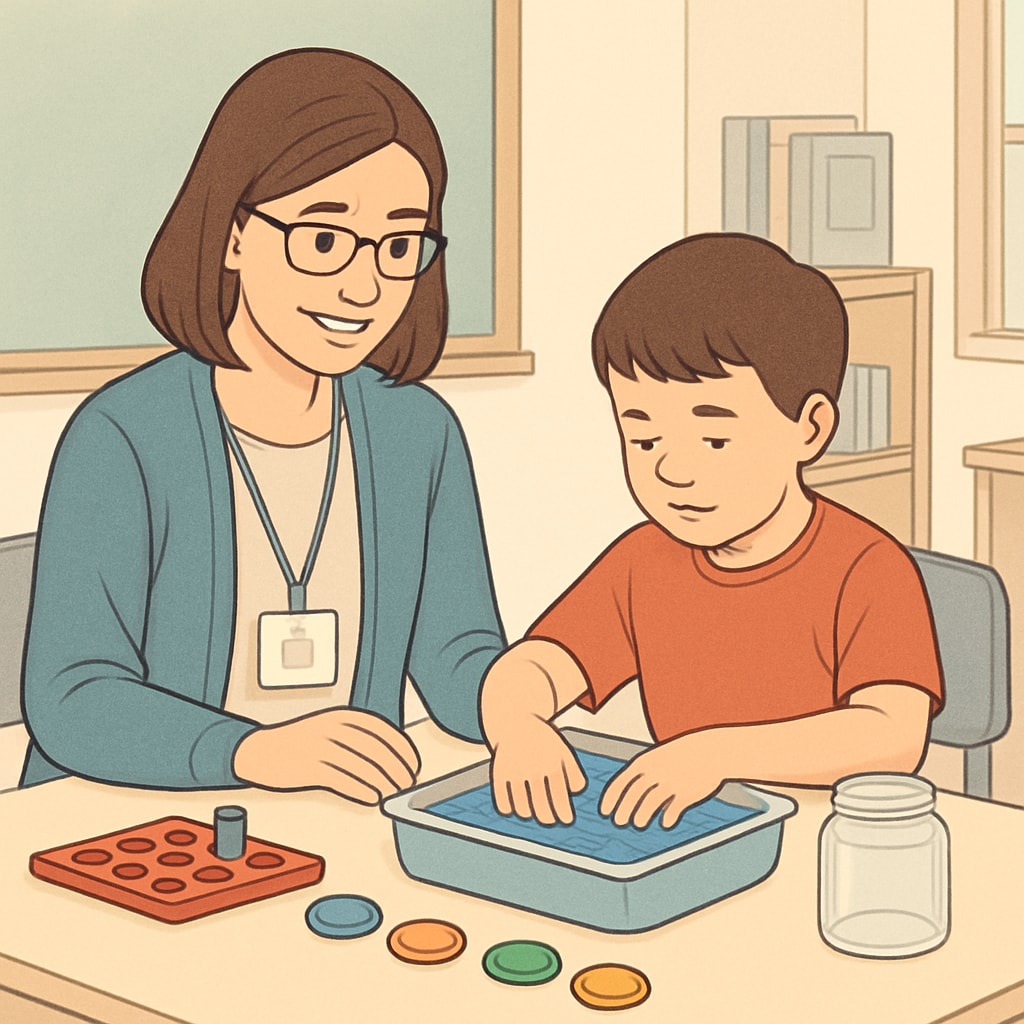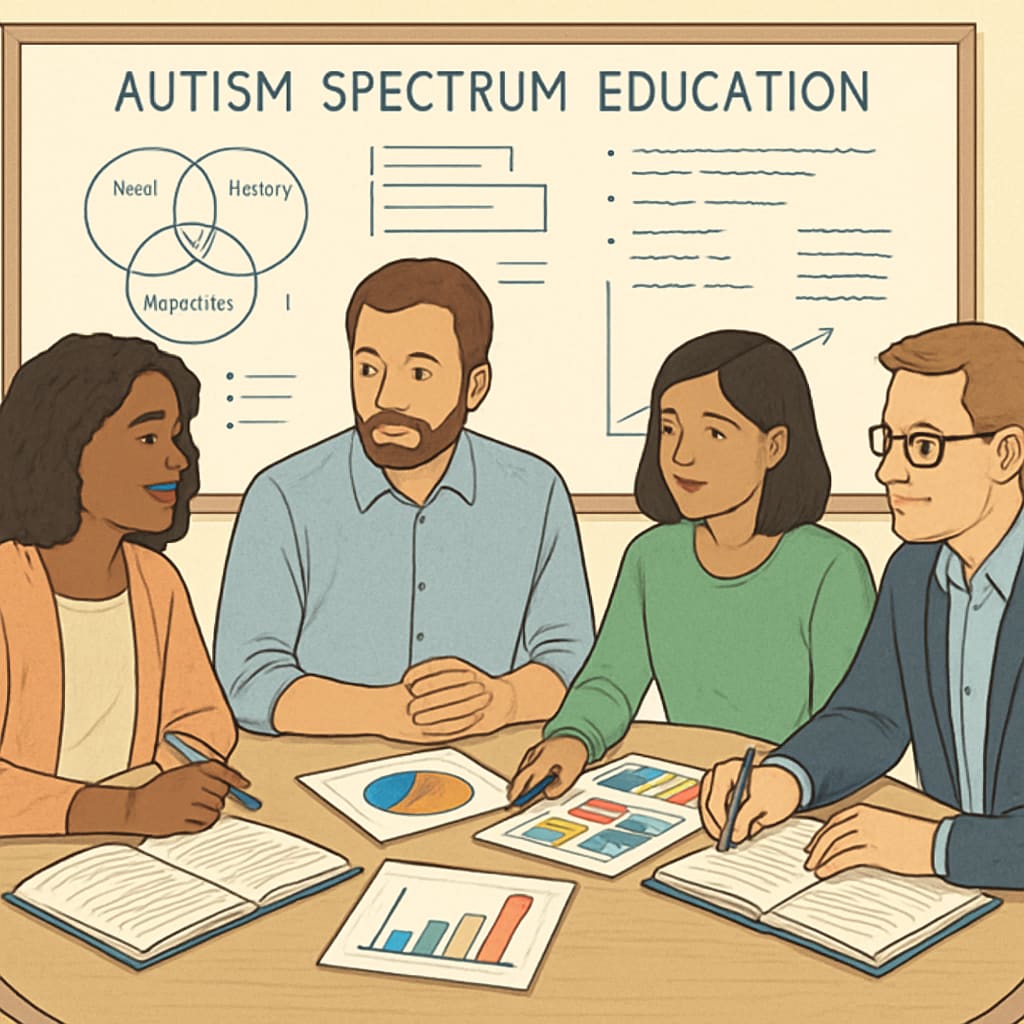Working in special education, particularly with students on the autism spectrum, is both a rewarding and challenging journey. As a teacher assistant, you play a vital role in creating supportive environments tailored to the unique needs of each student. This article offers practical insights and advice to help new teacher assistants prepare for their roles in special education, focusing on effective communication and support strategies for daily classroom success.
Understanding Autism and Its Impact on Education
Before stepping into a classroom, it’s essential to understand autism spectrum disorders (ASD). Autism is a developmental condition that affects communication, behavior, and social interactions. Because every student with autism is unique, their needs and preferences will vary significantly. For example, some students may be non-verbal but excel in visual learning, while others might have sensory sensitivities that require specific classroom adjustments.
As a teacher assistant, your readiness to adapt to these differences is key. Begin by learning about common characteristics of autism and best practices in special education. Many resources, such as Autism on Wikipedia, provide foundational knowledge to build your understanding.

Preparing for Success: Tips for New Teacher Assistants
When entering the world of autism spectrum education, preparation is essential. Here are several practical tips to set you up for success:
- Build a Strong Foundation: Familiarize yourself with the Individualized Education Plans (IEPs) of your students. These personalized documents outline each student’s strengths, challenges, and goals.
- Practice Patience: Progress in special education can take time. Celebrate small milestones and recognize that even incremental growth is meaningful.
- Communicate Effectively: Use clear, concise language and visual aids when needed. Many students with autism respond well to structured communication methods such as visual schedules or picture exchange systems.
- Be Observant: Pay attention to triggers that might cause discomfort or overstimulation for your students. This awareness will help you manage challenging situations proactively.
In addition, take care of your own well-being. Working in special education can be emotionally demanding, so it’s important to practice self-care and seek support from colleagues when needed.
Building Relationships with Students and Colleagues
Creating meaningful connections is one of the most fulfilling aspects of working in special education. Here are strategies to build strong relationships:
- Foster Trust with Students: Consistency is key. Students on the autism spectrum often thrive in predictable environments. Show reliability through your actions and maintain a calm demeanor, even during challenging moments.
- Collaborate with Teachers: As a teacher assistant, you’ll work closely with classroom teachers and specialists. Regularly communicate about student progress and share observations to ensure a cohesive approach.
- Engage with Families: Parents and guardians are invaluable partners in the education process. Keep them informed about their child’s achievements and challenges, fostering a team mentality.
By building these connections, you contribute to a supportive network that benefits both the students and the broader educational community.

Overcoming Challenges and Embracing Growth
While working as a special education assistant can be challenging, it is also an opportunity for personal and professional growth. Here’s how to navigate common obstacles:
- Stay Flexible: Unexpected situations are common in special education. Adaptability ensures you can respond effectively to changing circumstances.
- Seek Professional Development: Attend workshops, seminars, or online courses to deepen your expertise. Learning evidence-based strategies can enhance your confidence and effectiveness.
- Celebrate Successes: Recognize the progress made by your students, no matter how small. These moments of joy will remind you of the impact you’re making.
By embracing challenges and staying committed to learning, you’ll not only support your students but also develop valuable skills that will serve you throughout your career.
Conclusion: The Rewarding Path of Autism Education
Working as a teacher assistant in autism spectrum special education is a journey of compassion, patience, and growth. By understanding the unique needs of your students, preparing effectively, and building strong relationships, you can create a positive impact in their lives. Remember, your role is not just about teaching—it’s about empowering students to reach their fullest potential.
For more information on autism spectrum education, consult resources like Autism on Britannica. Embrace the challenges and joys of this rewarding profession, and take pride in the difference you make every day.
Readability guidance: Use short paragraphs and lists to summarize key points. Limit passive voice and long sentences while incorporating transitional phrases for smooth reading.


